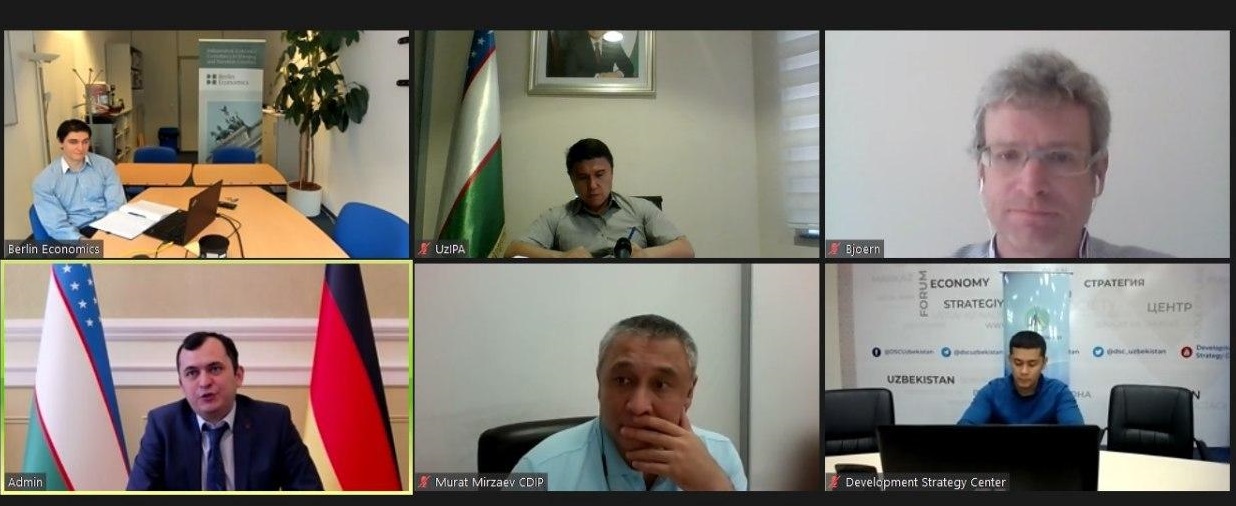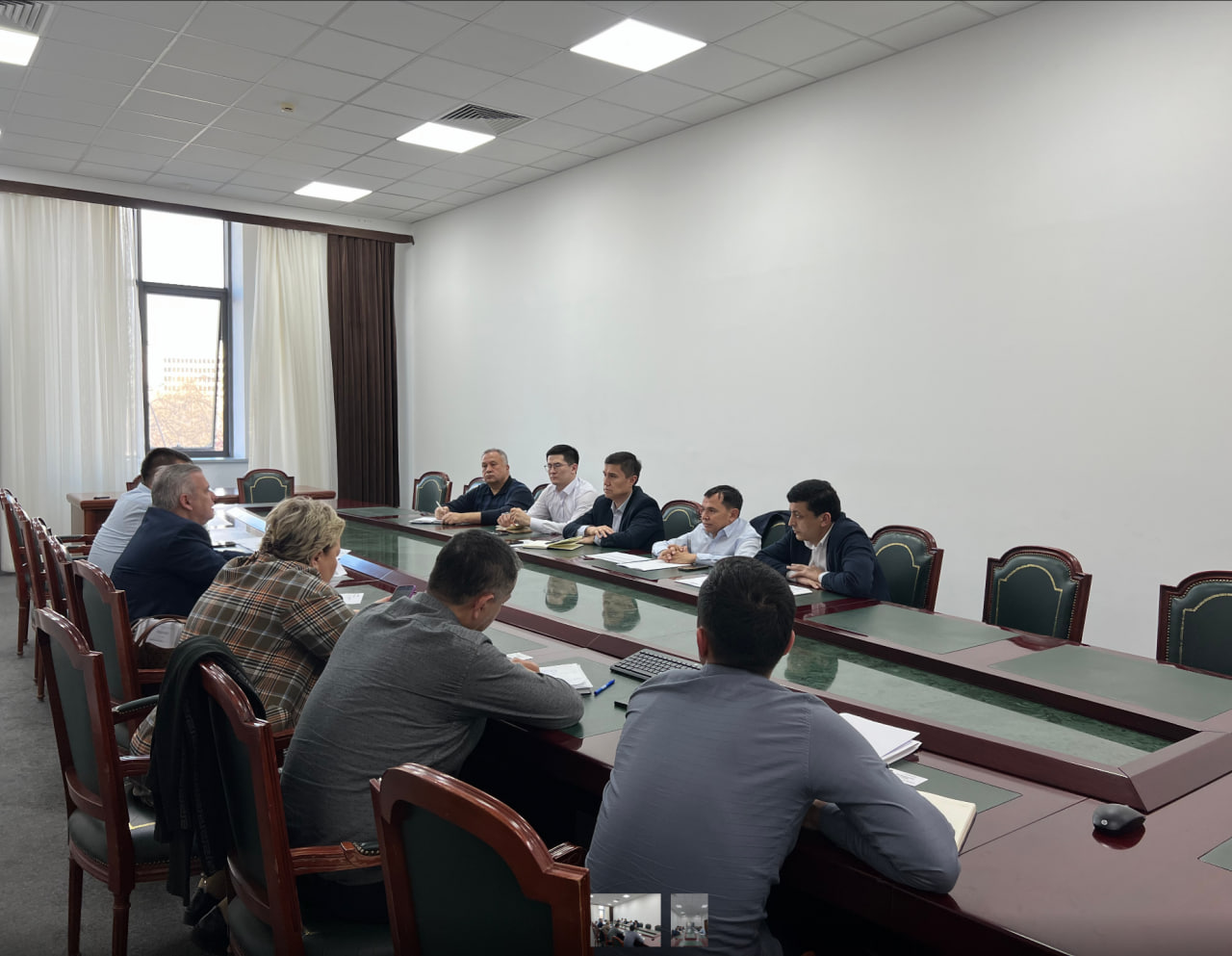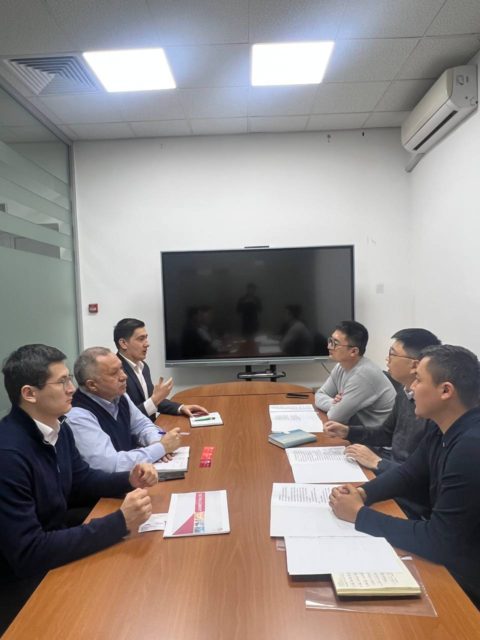Discussion on the impact of the COVID – 19 pandemic on foreign direct investment with the Berlin Economics research group
In early June, with the assistance of the Embassy of the Republic of Uzbekistan in the Federal Republic of Germany, a video conference was organized with the participation of the Berlin Economics research group, the leadership of the Investment Promotion Agency, the Center for the Development of Investment Projects and the Center for Development of Strategy. The video conference discussion was focused on the impact of the COVID-19 pandemic on investment activities and initial response measures of investment promotion agencies.
Berlin Economics experts presented a presentation on global economic trends related to the coronavirus pandemic and recommendations for further stimulating the investment attraction cycle.
— The temporary closure of borders, manufacturing enterprises, construction sites leads to untimely delays in the preparation and implementation of investment projects, — said Bjorn Fogler, expert at Berlin Economics, — according to UNCTAD and OECD forecasts, as a result of supply constraints, sharp fluctuations in external demand and overall decrease in investor confidence, global FDI in 2020 may be reduced by more than 30% compared to 2019.

Speaking of measures taken in Uzbekistan to maintain the level of business activity of the population and mitigating the economic consequences of the COVID-19 pandemic, the meeting participants noted that targeted support programs were adopted in a timely manner various sectors of the economy, the banking sector and small, medium and large businesses.
The management of the Investment Promotion Agency informed that an Anti-Crisis Fund with a budget of over $ 1.0 billion was created to finance activities to combat the spread of coronavirus infection, support entrepreneurship and ensure the sustainable functioning of economic sectors. To comprehensively cover all current issues and timely solve problems in the business sphere, an operational Republican headquarters for supporting exporters and entrepreneurs has been formed.
According to German experts, in order to maintain the country’s investment attractiveness, it is necessary to develop a comprehensive concept for attracting investment, covering a number of measures to activate domestic resources, develop free economic zones, create clusters in the regions, reinvest capital and other.
In their strategic tasks, the responsible departments for attracting investments need to reconsider the interests of the target audience, paying attention to those areas that today can contribute to increasing the sustainability of the economy in the long term. It is important to upgrade your market entry strategy, giving priority to digital marketing and digital services through websites, social networks and virtual leadership.
It was emphasized that industries and areas based on knowledge and technologies, such as healthcare, biotechnology, pharmaceuticals, e-commerce, cybersecurity focused on digital integration, during the pandemic period demonstrate steady growth and dynamics of investments.
At the end of the meeting, Berlin Economics expressed their readiness to develop cooperation with the Investment Promotion Agency and the Center for the Development of Investment Projects to develop proposals for introducing effective mechanisms for attracting foreign capital in the new conditions. It was also proposed to develop the concept of “Project Factory” in the country’s regions to stimulate domestic investment and realize the potential of the business population, provide jobs and self-employed citizens.
For reference: Berlin Economics, on behalf of the German Federal Ministry of Economics and Energy, is engaged in advising governments of countries with economies in transition on various aspects of economic policy and preparing relevant recommendations based on independent analysis. Uzbekistan is also in the focus of attention of the German research center.
Другие новости и события
Any use (reproduction, publication, copying, reprinting, distribution, translation, broadcasting, processing and other methods of distribution) of the materials of the Investment Portal - Invest.gov.uz, without indicating the original source and a link to the Portal is strictly prohibited!








